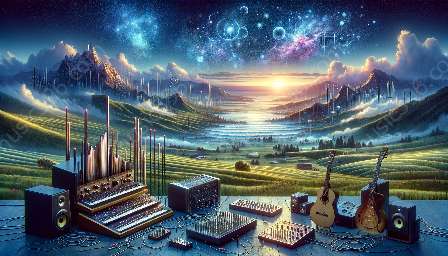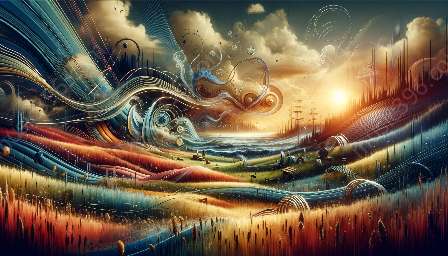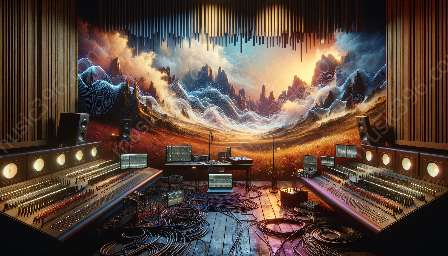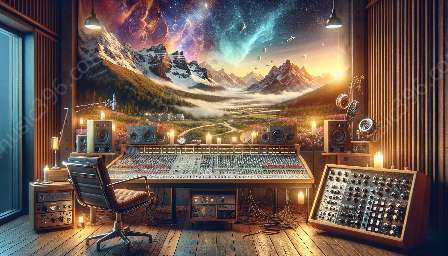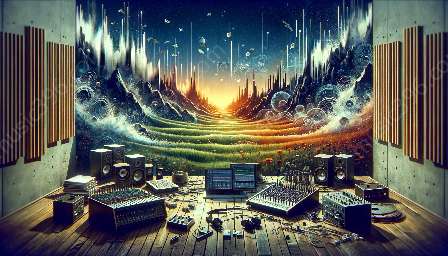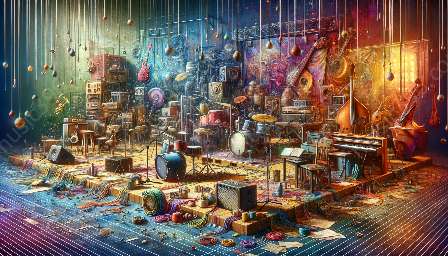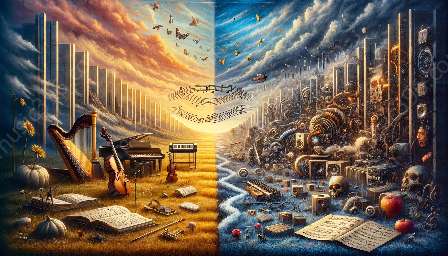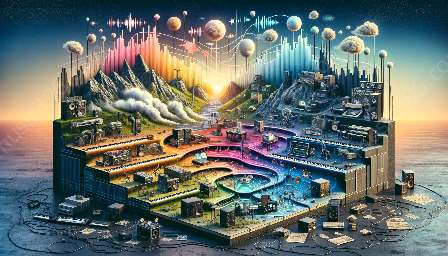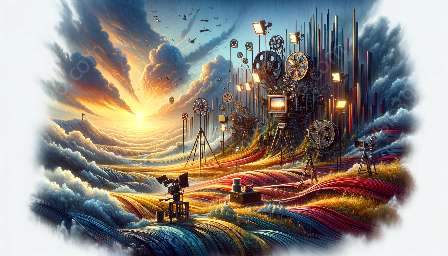Experimental music and cultural anthropology are two diverse but interconnected fields that offer a fascinating lens through which to examine the human experience. Exploring the rich history, influential artists, and evolving genres of experimental and industrial music provides valuable insights into the cultural landscape.
Influential Experimental Music Artists
The world of experimental music has been shaped by a myriad of innovative and influential artists who have pushed the boundaries of sound and composition. These pioneers have challenged traditional notions of music and paved the way for groundbreaking experimentation.
John Cage
John Cage, a renowned American composer and music theorist, is widely regarded as one of the most influential figures in experimental music. His avant-garde approach, epitomized by his composition 4'33'', revolutionized the concept of silence and the role of environmental sounds in music.
Karlheinz Stockhausen
Karlheinz Stockhausen, a German composer, is celebrated for his groundbreaking electronic compositions and his pioneering work in electronic music. His innovative use of tape manipulation and spatialization techniques has left an indelible mark on the experimental music landscape.
Laurie Anderson
Laurie Anderson, an iconic figure in the world of performance art and experimental music, has consistently defied categorization with her multimedia explorations of sound, technology, and storytelling. Her groundbreaking album Big Science remains a hallmark of avant-garde music.
Experimental and Industrial Music
The evolution of experimental and industrial music is deeply intertwined with cultural anthropology, as these genres reflect the socio-political landscape, technological advancements, and human experiences of their respective eras. The experimental nature of these genres allows for an exploration of diverse cultural influences and societal themes.
Historical Context
The roots of experimental and industrial music can be traced back to the early 20th century, with the emergence of avant-garde movements and the advent of new technologies. Artists and composers sought to challenge conventional musical structures, harness the potential of electronic instruments, and incorporate unconventional sounds into their compositions.
Cultural Significance
Experimental and industrial music serve as a creative outlet for cultural expression and social commentary. Through their unconventional sonic textures and thematic explorations, these genres provide a platform for artists to engage with issues such as urbanization, industrialization, globalization, and the human experience in the modern age.
The Intersection of Music and Cultural Anthropology
By examining the relationship between experimental music and cultural anthropology, we gain valuable insights into the ways in which music reflects and shapes human societies. The study of music within its cultural context allows for a deeper understanding of the intricate connections between creativity, expression, and cultural identity.
Anthropological Approaches
Cultural anthropologists often explore the role of music in societal rituals, traditions, and belief systems. The study of experimental music provides a unique opportunity to analyze the ways in which artists challenge and redefine cultural norms through their sonic innovations.
Cultural Adaptation and Innovation
Through the lens of cultural anthropology, we can appreciate the ways in which experimental music both adapts to and influences cultural dynamics. The fusion of diverse musical traditions, technological advancements, and societal changes contributes to the rich tapestry of experimental and industrial music.
Exploring Boundaries and Embracing Diversity
Experimental music and cultural anthropology encourage us to challenge boundaries, embrace diversity, and appreciate the myriad of perspectives that shape our understanding of the world. As we delve into the vibrant world of experimental music and its intersection with cultural anthropology, we embark on a journey of discovery, innovation, and cross-cultural dialogue.




